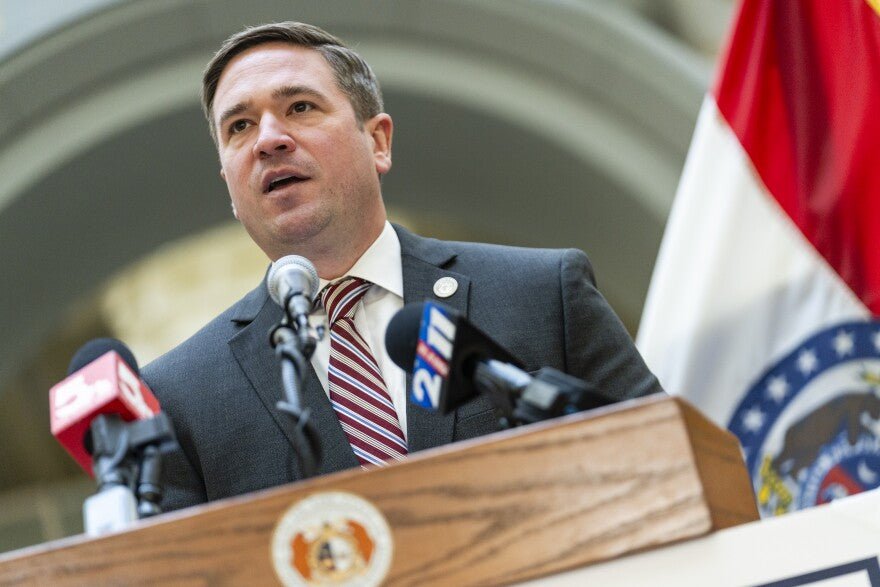As one of only a handful of states that does not have any form of medicinal cannabis, the Palmetto State is once again attempting to enact a highly restrictive and limited medical marijuana measure.

It has been almost 30 years since California enacted the country’s first medical marijuana law in 1996. Since then, 39 other states have passed similar measures, and 25, including California, have installed adult-use cannabis laws enabling millions of Americans to enjoy the recreational benefits afforded by the ancient plant.
However, not all states are created equal. Some, like this author’s home state of South Carolina, almost willfully deny their citizens access to cannabis's healing properties. Despite being one of the original 13 colonies when America was still a British-controlled agricultural and resource-rich outpost, South Carolina is one of the more enigmatic members of this nation’s originating core.
From its horrendous role in starting the nation’s soul-shattering Civil War to its disgraceful treatment of African Americans following the war and throughout much of the Civil Rights Movement, South Carolina remains a defiant and perplexing conservative stronghold, particularly on progressive issues like cannabis reform.
While other states are enjoying the health and wellness benefits of legalized marijuana (medical or adult use), along with the economic bounty associated with legalized weed, the citizens of South Carolina, a majority of which approve of a legal and regulated medical marijuana program, continue to suffer under the “good old boy system” still rampant and deeply ensconced in the deep, GOP-controlled South.
However, even the mightiest of glaciers eventually begin to melt, and such may be the case for the frigid and seemingly unmovable opinions of South Carolina lawmakers concerning the highly volatile and polarizing issue of legalized marijuana.
In February, the S.C. Senate, once again, passed a GOP-led measure that would establish the state’s first medical cannabis program. The reform legislation, entitled the Compassionate Care Act, sponsored by Sen. Tom Davis (R), would allow the sale of medical cannabis under some of the strictest guidelines in the country.
Under the bill, patients would have access to marijuana only for specific therapeutic purposes and would be required to be under the care and direction of a physician. The legislation allows for some oral medications as well as ointments and creams. However, the bill prohibits the smoking of marijuana under any circumstances.
This attempt by S.C. lawmakers is not the first time they have tried to pass legislation establishing a medicinal marijuana program in the Palmetto State. In 2022, Sen. Davis introduced a similar bill that came very close to passing. However, due to a procedural technicality, the legislation lost momentum and stalled out in the House.
Since the Senate approved the bill, it has been sitting in the House, awaiting action from that legislative body. Now, as first reported by Marijuana Moment, the S.C. House Medical, Military, Public, and Municipal Affairs Committee has announced that a Medical Cannabis Ad Hoc Committee will begin debating the legislation on Tuesday.
However, with only three weeks left in the legislative session, and given the House’s reputation concerning cannabis legalization, there is limited optimism that the chamber will be able to approve its version of the bill in time to reconcile it with the Senate’s and get it to Governor Henry McMaster’s desk in time.
In discussing his frustration over the lack of effort and attentiveness by House members regarding his legislation, Davis was quick to point out that while the Easter Band of Cherokee Indians (EBCI) opened its first recreational cannabis dispensary in neighboring North Carolina on 4/20, his “even-tighter” and more restrictive bill has sat idle in the supposed “freedom-loving House,” despite recent polls indicating widespread bipartisan support for it in the state.
The lawmaker has characterized the stance of his own party, particularly concerning medical marijuana, as “an intellectually lazy position that doesn’t even try to present medical facts as they currently exist.”
Despite the time crunch and fear that this bill, much like Davis’ 2022 iteration, will also fail to make it to the legislative finish line, there is a different air of hope for the 2024 version. Kevin Caldwell, a legislative manager at the Marijuana Policy Project (MPP), said in an interview on Monday that the organization is “glad that this historic legislation is getting a committee hearing in the South Carolina House of Representatives.”
Displeased that the House panel only invited witnesses from the law enforcement and medical communities to testify at the Tuesday hearing, as opposed to patients and caregivers, Caldwell is nonetheless hopeful that the legislation will receive House approval.
“Hopefully, any issues they have can be quickly dealt with and finally move this legislation to the floor for a vote. The patients of South Carolina deserve to know where their state representatives stand on this issue,” Caldwell said.
"Hopefully, any issues they have can be quickly dealt with and finally move this legislation to the floor for a vote. The patients of South Carolina deserve to know where their state representatives stand on this issue."
- Kevin Caldwell, a Legislative Manager at the Marijuana Policy Project (MPP)
Expressing a similar message of positivity and support, U.S. Rep. Nancy Mace (R-SC), a passionate cannabis reform advocate in Congress and vocal supporter of Davis’ bill, encouraged members of the state legislature to finish the job via a series of social media posts over the weekend.
“Medical cannabis can save lives, reduce drug addiction to opioids, help vets with PTSD, help with chronic illness, and provide a better quality of life for the terminally ill. Keep pushing,” she said.
"Medical cannabis can save lives, reduce drug addiction to opioids, help vets with PTSD, help with chronic illness, and provide a better quality of life for the terminally ill. Keep pushing."
- U.S. Rep. Nancy Mace (R-SC)
With a decision from the U.S. Drug Enforcement Agency (DEA) regarding whether the agency will take a recommendation from the Department of Health and Human Services to reschedule cannabis from a Schedule 1 to a Schedule 3 narcotic on the Controlled Substances Act imminent, and more and more states passing their own medicinal and recreational legalization laws, South Carolina could find itself in the familiar position of being on the wrong side of history and common sense if it fails to pass this extremely GOP-friendly reform measure yet again. It’s a sadly familiar refrain to a song many in the state are tired of hearing.







































